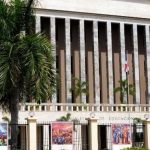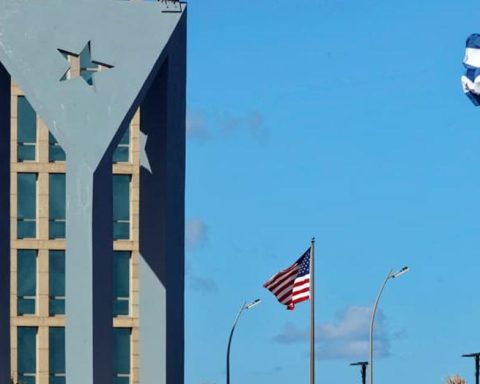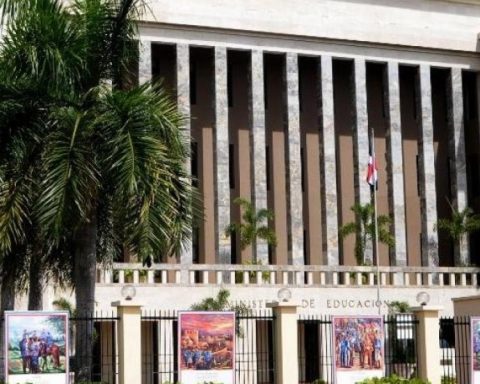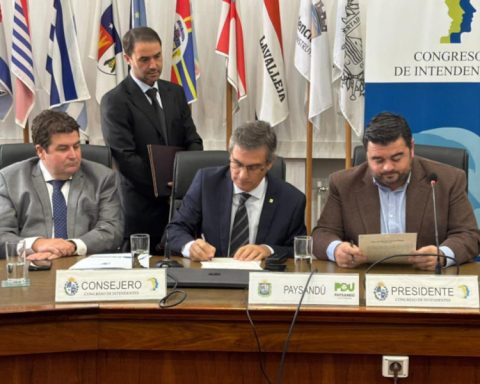The general budget of the nation (PGN) for 2023 has just over two months to be approved in Congress, and although the project has not formally begun its discussion, it has already aroused several criticisms.
(Minhacienda suggests to Congress to adjust the norm on the Budget).
The government of Gustavo Petro has described as “unfinanced” the project that the administration of Iván Duque established, which seeks an amount of $391.4 billion for the next fiscal period. For this reason, the possibility of modifying the current deadlines for the legislative process has been put on the table, so that with the changes of government the incoming administration has greater freedom in the designation of resources for the different sectors.
“It is a structural reform that has to be. It makes no sense that we are discussing the budget presented by the past government when we are in the new government. A structural reform must be made that says that all the deadlines for the first budget of a new government be done gradually, so that there is more time for its approval. It is a reform that must be done forever,” said the Minister of Finance, José Antonio Ocampo.
(How is the Colombian financial system, according to rating agency Moodys).
deadlines
According to the current norm, the Government must annually formulate the revenue budget and the appropriations law, and this “will be presented to Congress within the first ten days of each legislature”, that is, between July 20 and 29. For this reason, the previous government was the one who filed the budget and not the current one.
It is also defined that Before October 20 at midnight, the approval of the PGN must be given in the Congress of the Republic, for which, in the first place, it must go through the economic commissions (third and fourth) in the first debate, and in the plenary sessions of the Chamber and Senate in the second debate. Finally, the Law stipulates that before December 31 the President must sanction the Budget Law.
In addition, according to Portafolio, September 14 would be the maximum date for the amount to be approved; before the 24th of next month the PGN 2023 should be approved in the commissions and on October 1st they should be starting the discussions in plenary sessions.
(Would the Petro government have to resort to a second tax reform?).
The alternatives
The economic studies center Anif issued a comment stating that this would be “a budget subject to change”, bearing in mind that “it was developed under spending priorities that we can expect to differ from that of the new government.”
The institution said it is waiting for the modifications that the budget undergoes during its transit in the Congress of the Republic, and that it expects “important changes in the amount of investment and in the source of resources, given the presentation of a new tax reform that would give additional resources to the government of the day, if approved”.
From the Legislature, the representative to the Chamber for the Dignity party in the fourth commission (the budget), Jennifer Pedraza, said that she considers the proposal to modify the definition dates of the General Budget of the Nation in the first year of Government to be correct. .
“It is absurd that the spending, investment and distribution priorities are defined by an outgoing government, precisely because the people voted for a change that is reflected in different budget distributions,” said Pedraza.
Regarding the schedule, he clarified that the annual delivery dates are specified by means of decrees, “such as Decree 1068 of 2015, where it is established that in the month of April the preliminary project must be sent to Congress. These are decrees that the Executive can modify and it becomes necessary to avoid generating this train wreck every four years.”
Senator Gustavo Bolivar, president of the third commission of the Senate, assured that “there are three paths. Accept that amount and make an internal redistribution; the second is to return it so that the government resubmits it because it is underfunded and a tax reform would not be needed, but rather a financing law.”
The third option, he said, is that “with some surviving income, such as oil, some surpluses that are presented by the collection, we could refinance the budget down the road without having to see it now.”
From the opposition, the representative for the Democratic Center before the fourth commission, Christian Garcés, said that “the idea could sound good, however, it would be necessary to modify the Constitution in several aspects, and it could cause entanglements in our institutional architecture”, and defended that the presentation of the budget obeys a ‘planning criterion’, what is established is the result of technical and analytical work, which begins in February”.
Additionally, the opposition representative Garcés reiterated that the PGN, by constitutional mandate, must correspond and guarantee the resources for the National Development Plan, which also have a gap, since the incoming President finishes executing the plan of the outgoing President.
This is how the amounts of the PGN project are
The project filed on July 29 pursues a total amount of $391.4 billion, of which 64% ($250.6 billion) will go to operating expenses, $78 billion (19.9%) to debt service payment and $62.8 billion (16%) to investment. As a percentage of GDP, the budget weighs 27%.
If approved in this way, the PGN would increase its resources by 11.1%; the operating amount would see an increase of 18.7% compared to this year and the debt service would increase by 8.8% and investment, on the contrary, would fall 9.8%.
By sectors, the largest allocation in the PGN project are social inclusion and reconciliation, with 25.36% of the total, equivalent to $15.9 billion; transportation, with $9.66 billion (15.39%); for finance it is at $6.8 billion (10.94% of the total)
LAURA LUCIA BECERRA ELEJALDE
BRIEFCASE

















